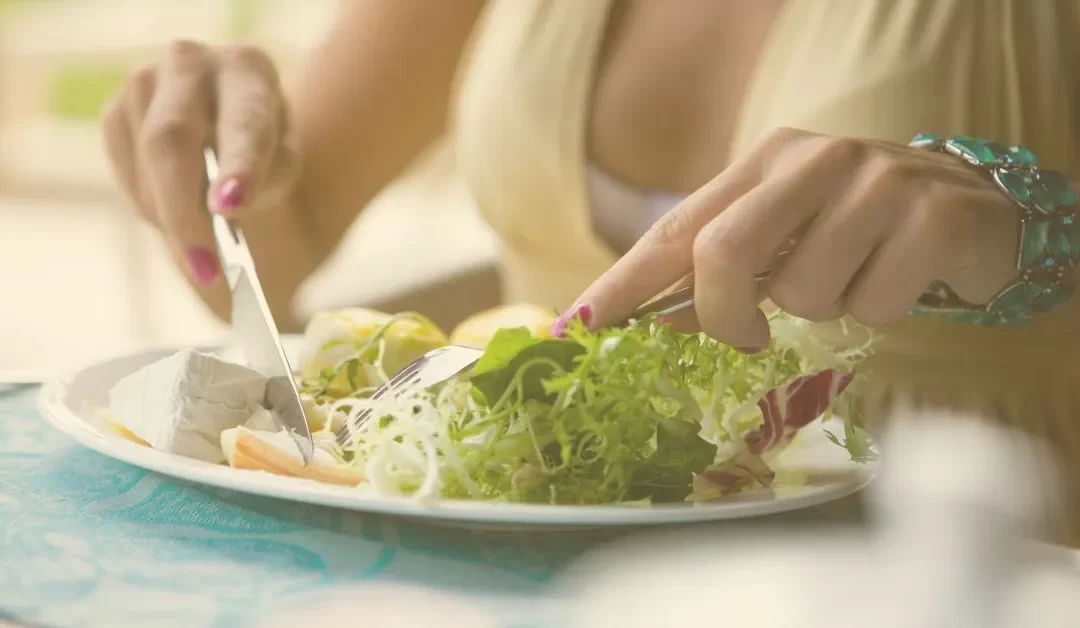Have you realized that your relationship with food needs a little work? Check out these journal prompts for intuitive eating.
Intuitive eating is the act of eating to satiate your physical body. By using your intuition, you can disconnect from your emotional state and fuel your body properly. This way of eating is free from limitations and restrictions, as well as overindulging and binging.
There is no room for “good” or “bad” foods in this lifestyle, which allows you to have ultimate food freedom. In these writing prompts for intuitive eating, we encourage you to explore your relationship with food and figure out the root cause of your anxiety.
In this post, we’ll help you look towards the future to a brighter life where food is just a tiny piece of the puzzle, rather than an obsession.
Benefits Of Journaling For Intuitive Eating
Below you’ll find the most important benefits of journaling for intuitive eating.
Sharing Your Emotions
Binging and restricting often bring with them (unnecessary) feelings of shame. You may not feel confident enough to approach a loved one to discuss your attitude towards food.
However, you can share your ups and downs in your intuitive eating journal freely, without the fear of judgment.
In fact, these food freedom journal prompts encourage you to ask yourself deep questions that you may have been avoiding, such as where your abnormal eating patterns stemmed from.
Identifying Patterns
Writing about your relationship with food allows you to identify patterns in your eating habits that may be causing you harm. It is only once you’ve figured out exactly where you’re at that you can begin to heal.
You may start to notice patterns around which foods you restrict, which emotions cause you to binge, or which people have a negative impact on your recovery. From there, you can take the necessary steps to move towards a healthier approach to food.
Working Towards Food Freedom
Food freedom doesn’t happen overnight, it’s often a long and tough journey. However, by using these journal prompts for intuitive eating, you can take a step in the right direction.
Once you’ve identified recurring patterns, you can take action towards changing your mentality.
This may mean that you choose a different way to deal with negative emotions that don’t involve food or limit your contact with those who make you feel bad about yourself.
As you work your way to a comfortable place with food, you’ll be able to look back over your journal and see how far you’ve come.
How To Use Journal Prompts For Intuitive Eating
Step 1: Identify your goals for intuitive eating and choose a journal prompt that resonates with where you are on your journey.
Step 2: Allow yourself to open up and be honest about where you’re at currently.
Step 3: Work your way through these intuitive eating journal prompts in whatever way works best for you. Don’t shy away from the hard questions, as these will be the most beneficial to you in the long run.
📖 Need a journal? Click here to browse journals on Amazon.
60 Journal Prompts For Intuitive Eating
Let’s dive right into it!
Here are 60 intuitive eating writing prompts to help you unravel your complex relationship with food and create simpler eating habits.
- Which foods do you currently restrict?
- Which foods do you label as “bad?”
- What emotions do you feel before eating?
- Explain your dieting history.
- What have you learned on your intuitive eating journey?
- Do you have any dieting habits that you struggle to rid yourself of?
- Do you think about calories while eating?
- Which foods make you feel “guilty” for eating them?
- How are your eating habits different from those around you?
- List three benefits of intuitive eating.
- How has your body changed since you started eating intuitively?
- How has your appetite changed since you started eating intuitively?
- What is one small step you can take today to bring you closer to being at peace with food?
- What is the hardest thing about giving up dieting?
- Do you think social media has an impact on your eating habits?
- Do your friends impact your eating habits positively or negatively?
- How will you feel once you achieve food freedom?
- On your intuitive eating journey, have you learned to tell the difference between hunger and thirst?
- Do you always listen to your body’s hunger cues?
- Do you use food as a crux in times of difficulty?
- What emotions do you experience while eating?
- Has anyone ever commented on your eating habits? What did they say and how did it make you feel?
- When did you start dieting or restricting your food?
- Do you think a healthy attitude to food will impact other parts of your life, such as work or your relationships? Why?
- Do you track your calories? What is the purpose behind recording your food?
- How would you like to feel after eating?
- Are there any places or activities that have been off-limits to you because of your strict relationship with food?
- Do you practice mindful eating?
- At which times in life do you find yourself binging?
- What is a self-care activity you could incorporate into your life to replace emotional eating?
- Growing up, what was your parents’ attitude to food?
- What is your comfort food? Do you have any memories or emotions associated with it?
- Growing up, was there always enough food to go around?
- As a child, was your weight ever commented on?
- How do you feel when you look in the mirror?
- Do you have obsessive thoughts about your body?
- Is the story you tell yourself about your body ACTUALLY true?
- Who inspires you to become healthy?
- How would your dream body differ from your current body?
- Do you enjoy cooking?
- How does diet culture impact your everyday life?
- How much of the day do you spend thinking about food?
- Name three positive things that happened today that had nothing to do with food or your body.
- Do you regularly weigh yourself? Do you think it impacts your self-worth positively or negatively?
- How is your mental health impacted when you eat well?
- How do you feel when you eat something “bad?”
- What foods do you tend to overconsume/binge on?
- Which emotions cause you to eat? (Anger, frustration, loneliness, etc.)
- How do you talk about friends’ bodies?
- Do you speak about yourself as kindly as you would a friend?
- How will you be a role model for intuitive eating?
- If your child called themselves fat, what would you say?
- How will you help your children to have a healthy relationship with food?
- How do you think your relationship with food would differ if you had your dream body?
- How much of your self-worth is related to your body?
- What are three incredible attributes you have that are not related to your body?
- What do you wish others would realize about your eating habits?
- Write a letter to your body.
- List the fears you have surrounding food.
- Pretend you are from the future and have fixed your relationship with food. What do you think you would tell your current self?
Final Thoughts On Journaling For Intuitive Eating
It can be challenging to unlearn eating habits that may have been in place for years, but we hope that these journal prompts for intuitive eating will help you to reframe your mind and enjoy eating without guilt, fear, or shame.
If you found this post helpful, check out these blog posts:

